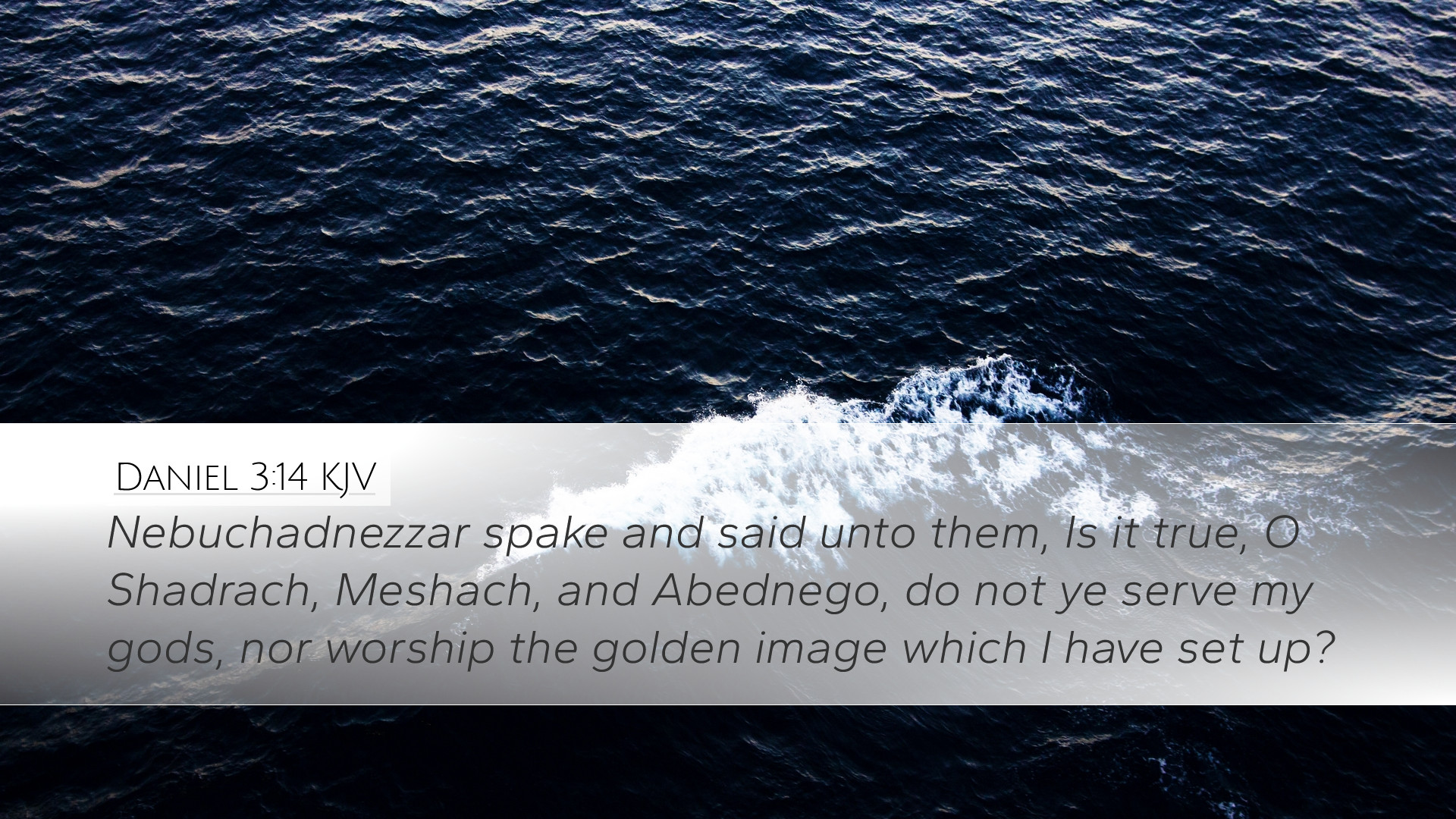Old Testament
Genesis Exodus Leviticus Numbers Deuteronomy Joshua Judges Ruth 1 Samuel 2 Samuel 1 Kings 2 Kings 1 Chronicles 2 Chronicles Ezra Nehemiah Esther Job Psalms Proverbs Ecclesiastes Song of Solomon Isaiah Jeremiah Lamentations Ezekiel Daniel Hosea Joel Amos Obadiah Jonah Micah Nahum Habakkuk Zephaniah Haggai Zechariah MalachiVerse
Daniel 3:1 Daniel 3:2 Daniel 3:3 Daniel 3:4 Daniel 3:5 Daniel 3:6 Daniel 3:7 Daniel 3:8 Daniel 3:9 Daniel 3:10 Daniel 3:11 Daniel 3:12 Daniel 3:13 Daniel 3:14 Daniel 3:15 Daniel 3:16 Daniel 3:17 Daniel 3:18 Daniel 3:19 Daniel 3:20 Daniel 3:21 Daniel 3:22 Daniel 3:23 Daniel 3:24 Daniel 3:25 Daniel 3:26 Daniel 3:27 Daniel 3:28 Daniel 3:29 Daniel 3:30

